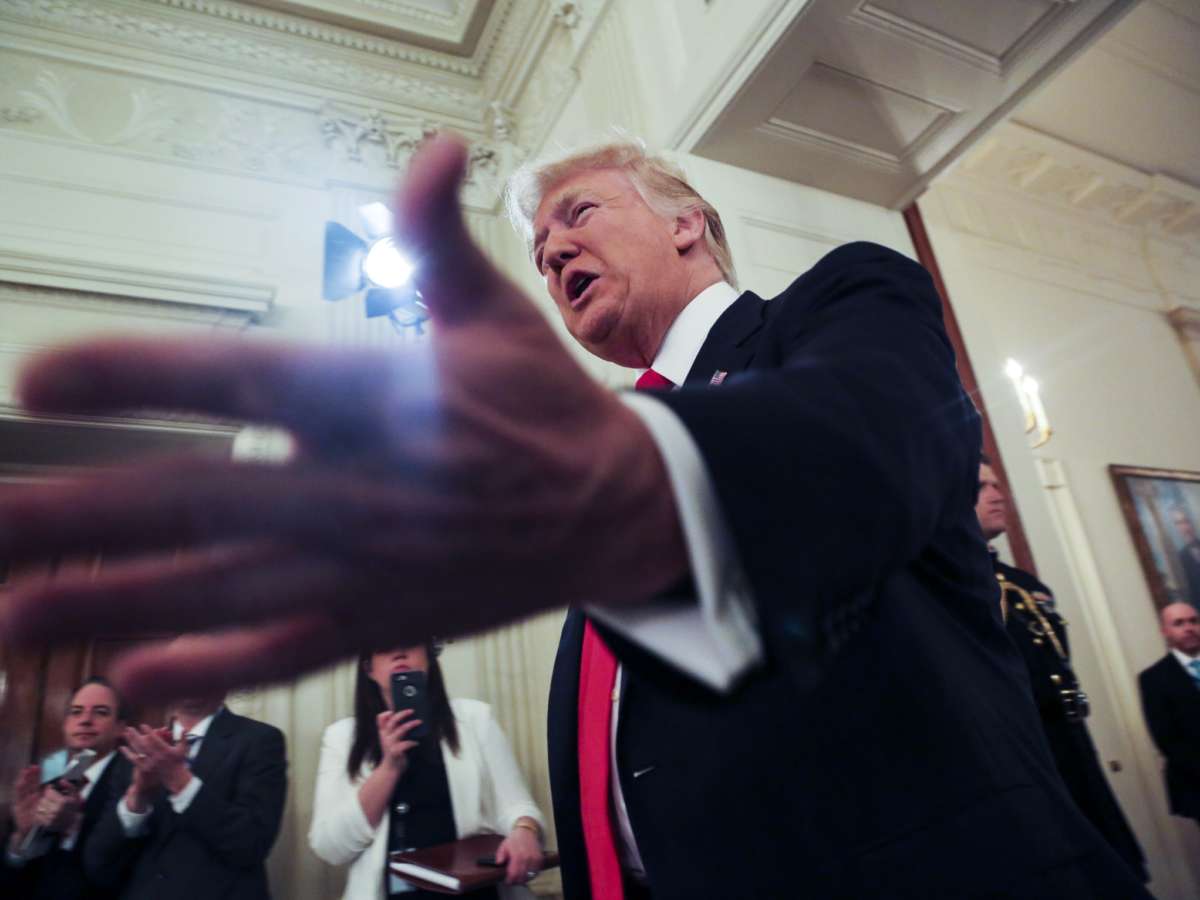A new book about Donald Trump’s time in the White House showcases that the former president lacks a basic understanding of the constitutional rules surrounding impeachment.
The book, “Confidence Man: The Making of Donald Trump and the Breaking of America,” written by New York Times reporter Maggie Haberman, contains a number of anecdotes about Trump’s tenure in the White House. Trump’s commentary on his first impeachment trial — which was centered around his attempt in 2019 to coerce Ukraine President Volodymyr Zelenskyy to find political dirt on now-President Joe Biden in exchange for military assistance from the U.S. — demonstrates his lack of knowledge on the process.
“I’ll just sue Congress. They can’t do this to me,” Trump said at the time, according to Haberman’s book.
The U.S. Constitution doesn’t contain statutory language that allows a federal official to sue Congress in order to stop impeachment.
Haberman’s account of Trump’s comments echoes the former president’s statements months before the hearings began. Although Trump didn’t explicitly state that he would sue to stop a hypothetical impeachment, he did imply that he’d try to use the court system to stall or stop the process.
“If the partisan Dems ever tried to Impeach, I would first head to the U.S. Supreme Court,” Trump said on Twitter in the spring of that year.
Again, there is no stipulation that allows for the Supreme Court to stop an impeachment from taking place. Indeed, the federal court system is altogether absent from the process, according to the Constitution.
Both Article I and Article II of the Constitution (which deal with Congress and the president, respectively) detail how the process works. Article III, which discusses the federal courts and the Supreme Court, mentions impeachment briefly, but only to say that all criminal trials, save for impeachments, will be decided by juries.
The only time the Supreme Court is involved in a federal impeachment trial is if a president is impeached. Still, that involvement is very limited, as the Constitution simply states that the Chief Justice of the Supreme Court will preside over the Senate impeachment trial, and do nothing more.
The House votes to impeach the president, and the Senate votes to remove them — the Chief Justice doesn’t play a role in determining the outcome in either house of Congress.
According to Bess Levin, a politics correspondent for Vanity Fair, Trump’s comments from 2019 are still relevant, as they showcase how little he knows about the Constitution and the limits of the presidency.
“Given this man’s apparent ambitions to seek yet another four years in office, it feels necessary, in a fate-of-the-planet kind of way, to make sure every instance of him being a full-on half-wit is recorded for posterity,” Levin wrote in a recent column.


